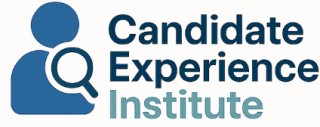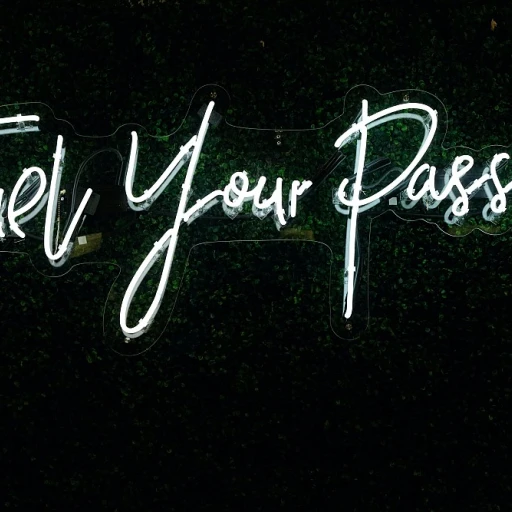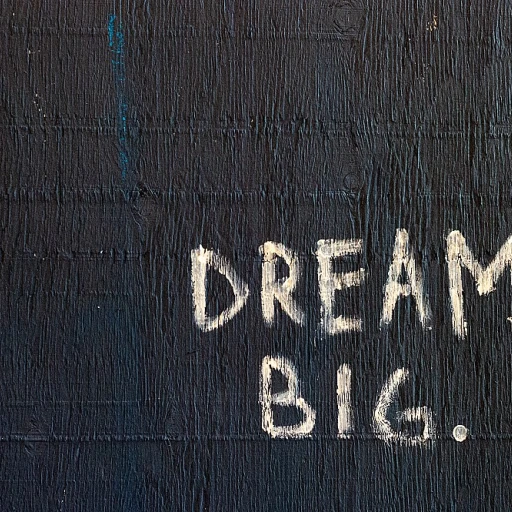Recognizing Common Interviewer Mistakes
Identifying Frequent Missteps in Interviews
In the realm of candidate experience, the role of the interviewer is pivotal. However, common interviewer mistakes can significantly impact the overall experience for candidates. These errors often stem from a lack of training or awareness, leading to issues that can tarnish an organization's reputation.
Some prevalent mistakes include:
- Inadequate Preparation: Interviewers who fail to thoroughly review a candidate's resume or application may ask irrelevant or repetitive questions, leading to a disjointed interview process.
- Poor Question Formulation: Crafting effective interview questions is crucial. Poorly structured questions can confuse candidates and hinder their ability to provide comprehensive responses. For more insights on creating effective questions, visit effective interview questions to enhance employee engagement.
- Bias and Assumptions: Allowing personal biases or assumptions to influence the interview can lead to unfair assessments and affect the diversity of the hiring process.
- Lack of Engagement: Interviewers who appear disinterested or distracted can make candidates feel undervalued, impacting their perception of the company.
Recognizing these mistakes is the first step toward mitigating their effects. As we explore further, understanding the impact of these errors on candidates and how to improve interviewer training and feedback mechanisms will be crucial in enhancing the overall candidate experience.
Effects of Interviewer Mistakes on Candidates
Understanding the Consequences of Interviewer Mistakes
Interviewing candidates is a crucial step in the hiring process, but when interviewers make mistakes, the effects can be detrimental to the candidate experience. These errors can range from minor missteps to significant blunders, each impacting the candidate's perception of the organization.
One of the primary effects of interviewer mistakes is the potential to create a negative impression of the company. Candidates often view the interview as a reflection of the organization's culture and values. When interviewers display unprofessional behaviors or fail to engage effectively, it can lead to candidates questioning whether they want to work there.
Errors in interviews can also lead to miscommunication. For instance, if an interviewer fails to ask clear questions or misunderstands a candidate's response, it can result in inaccurate data collection. This not only affects the candidate's experience but can also lead to poor hiring decisions.
Survey data from institutions like the University of Nebraska-Lincoln highlights how interviewer errors, such as reading questions incorrectly or displaying biased behaviors, can skew results and affect public opinion. Researchers like Jolene Smyth and Kristen Olson have explored how these interviewer effects can alter the outcomes of survey interviews, emphasizing the importance of minimizing errors to maintain the integrity of the data.
Furthermore, repeated errors in the interview process can lead to increased frustration among candidates. This frustration may result in candidates withdrawing from the process, sharing negative feedback about their experience, or even impacting the organization’s reputation in the long run.
To mitigate these issues, organizations must focus on continuous improvement in their interview processes. This includes better training for interviewers, implementing robust feedback mechanisms, and leveraging technology to minimize human error. By addressing these areas, companies can enhance the overall candidate experience and ensure a fair and accurate assessment of potential hires.
Improving Interviewer Training
Elevating the Competence of Interviewers Through Strategic Training
Improving interviewer training is crucial to addressing the prevalent mistakes that mar the candidate experience during interviews. In the recruitment process, interviewer behaviors and errors can significantly influence a candidate's perception and decision-making process. This section delves into how structured training programs can mitigate these challenges and enhance overall candidate experience. To begin, interviewers need to be aware of the common pitfalls that occur during interviews. These include the misreading of questions, biased behaviors, and inadequate response to candidate queries, frequently leading to interviewer error and negative candidates' perceptions. Comprehensive training programs should incorporate real-world scenarios and feedback from previous interviews to highlight these issues. Training programs should focus on developing crucial skills such as active listening and empathetic communication. Interviewers need to be well-versed in the question characteristics to avoid survey error and ensure they are not inadvertently leading candidates or dismissing their responses. Understanding the effects of errors arising from misreading or misinterpreting question prompts is essential in avoiding these pitfalls. Data collection from past interview sessions can be particularly beneficial. It provides interviewer respondents specific feedback on what worked well and where there were discrepancies. Techniques such as role-playing and peer reviews can effectively simulate the interview environment, allowing interviewers to practice and receive constructive feedback. Resources like the research studies conducted by esteemed institutions provide invaluable insights into interviewer experiences and error rates. For example, the works of survey methodologists from universities such as Nebraska-Lincoln offer practical recommendations on how to identify and rectify survey interviewing inconsistencies. Furthermore, integrating modern tools and technologies can help minimize interview-related errors. Whether through automated systems for error-checking or digital platforms for real-time interviewer training modules, technology plays a crucial role. For those interested in a deeper dive into crafting an exceptional interview journey, resources such as the Candidate Experience Institute's guide are indispensable. By prioritizing robust training and continued improvement, organizations not only reduce interviewer effects but also enhance the credibility and reliability of their recruitment process. This approach ensures that every interview is carried out with professionalism and respect, significantly boosting the candidate experience.Implementing Feedback Mechanisms
Promoting Regular Feedback and Assessment
An often-overlooked aspect of enhancing the candidate experience is establishing robust feedback mechanisms. These should be seamlessly integrated into the interview process, enabling both candidates and interviewers to provide insights. By doing so, organizations can identify interview errors and work on minimizing them.
Encouraging open communication between interviewers and respondents helps in understanding the effects of interviewer behaviors. For instance, interviewers who regularly assess their approach through feedback are less likely to commit common errors in interviews. This proactive stance fosters a more respectful and constructive candidate experience.
Survey data collection plays a critical role here. It can offer comprehensive insights on interviewer error by highlighting patterns in interviewer sessions. When analyzing surveys, factors like question characteristics and interviewer respondent interactions are vital. Insights from Survey Interviewing and related chapters by experts like Kristen Olson and Allyson Holbrook can offer valuable frameworks for assessing these patterns.
Implementing consistent feedback loops from candidates can also aid in measuring total survey error during interviews. This includes understanding how various questions impact candidate response and refining the interview questions accordingly. By leveraging research from sources such as the University of Nebraska, organizations can adopt evidence-based strategies to minimize interviewer effects.
Ultimately, strategic feedback mechanisms serve as a foundation for institutional learning. They allow for the ongoing refinement of interview processes, ensuring that candidate experiences are continuously improved and enhanced over time.
Leveraging Technology to Minimize Errors
Technology as an Ally in Reducing Interview Errors
Leveraging technology can significantly minimize interviewer mistakes, thereby enhancing the overall candidate experience. With advancements in digital tools, interviewers are better equipped to reduce errors caused by human oversight and inconsistencies. Key to this is the proper utilization of data-driven insights and the integration of supportive technologies.
First, data collection software allows for more structured and systematic processes during interviews. By employing systems that streamline question delivery and recording responses, one can markedly reduce the occurrences of interviewer error and survey error. Survey interviewing platforms, for example, aid in maintaining consistency and clarity, ensuring each respondent receives identical question characteristics.
Technology also offers analytics tools that provide insights into interviewer behaviors. Understanding these patterns allows for adjustments and improvements, targeting behaviors that may previously have led to interviewer effects. Additionally, platforms can offer immediate feedback through real-time monitoring, which is instrumental in identifying potential missteps and addressing them promptly.
Moreover, the precision of technology extends to error analysis. Tools that dissect the intricacies of interview data can highlight areas of potential interviewer error. This not only refines the interviewing process but also contributes towards the efforts of institutions like the University of Nebraska, Lincoln, in their research on public opinion and survey interviewing, spearheaded by experts such as Frauke Kreuter and Allyson Holbrook.
Ultimately, integrating technology into the interviewing process supports an objective approach, where information can be cross-referenced efficiently, minimizing discrepancies. By eliminating error and maximizing the efficiency of interviews, organizations can subsequently refine their candidate experience, ensuring every interaction is as seamless and professional as possible.
Case Studies of Successful Candidate Experience Improvements
Real-World Success Stories in Candidate Experience
In the quest to enhance candidate experience, several organizations have made notable strides by addressing interviewer errors and refining their interview processes. These case studies highlight effective strategies and the positive outcomes achieved.
Case Study 1: Tech Giant's Structured Interview Training
A leading tech company recognized the adverse effects of inconsistent interviewer behaviors on candidate experience. By implementing a comprehensive training program focusing on interviewer reading and question characteristics, they significantly reduced interviewer errors. The training included workshops led by experts from the University of Nebraska, emphasizing the importance of structured interviews and the impact of interviewer effects on public opinion.
Post-training surveys indicated a marked improvement in candidate satisfaction, with respondents noting a more consistent and fair interview process. This case underscores the importance of investing in interviewer training to minimize survey error and enhance the overall candidate experience.
Case Study 2: Retail Chain's Feedback Mechanism Implementation
A major retail chain revamped its interview process by implementing a robust feedback mechanism. They conducted regular survey interviewing sessions with both interviewers and candidates to gather insights into potential areas of improvement. This data collection effort was spearheaded by a team of experts, including Jolene Smyth and Kristen Olson, who analyzed the feedback to identify recurring issues.
The introduction of this feedback loop allowed the organization to quickly address interviewer errors and refine their interviewer respondent interactions. As a result, the company reported a significant increase in candidate satisfaction and a reduction in negative interview experiences.
Case Study 3: Financial Institution's Technological Integration
A financial institution faced challenges with interviewer consistency and response accuracy. By leveraging technology, they introduced an AI-driven interview platform that provided real-time feedback to interviewers, helping them stay aligned with best practices. This technological integration minimized human error and ensured a more uniform interview experience.
The platform also allowed for detailed analysis of interviewer behaviors and question characteristics, providing valuable insights into areas requiring further training. The results were overwhelmingly positive, with candidates expressing higher levels of satisfaction and confidence in the fairness of the interview process.
These case studies demonstrate the tangible benefits of addressing interviewer errors and enhancing the candidate experience. By focusing on training, feedback, and technology, organizations can create a more positive and effective interview process, ultimately improving their employer brand and attracting top talent.











